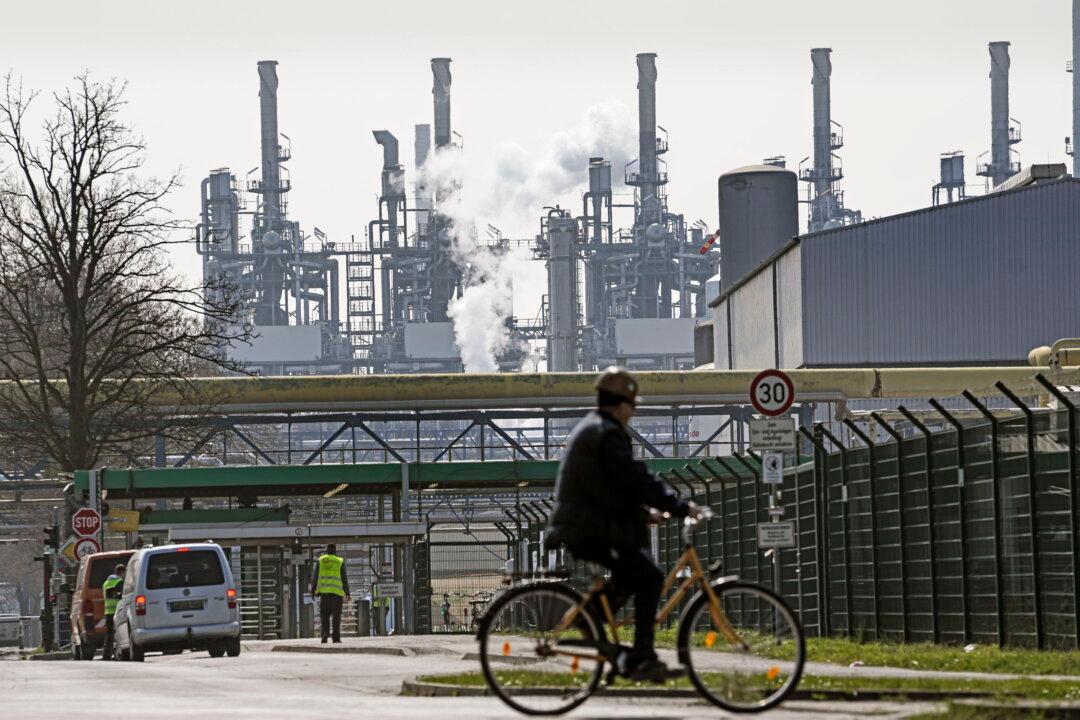Berlin has triggered the first stage of an emergency plan for managing gas supplies due to concerns of potential supply disruptions following Russian President Vladimir Putin’s push to make “unfriendly” nations buy gas in rubles.
Germany’s emergency gas plan has three levels. The first is the early warning, which is triggered when there are signs that a supply crisis might emerge. The second level is triggered when extremely high demand or supply disruptions upset the market balance. In this scenario, the imbalance can be rectified without any interventions.





